
My parents’ generation were all shaped by the Second World War. They came back from the adrenaline rush of Dunkirk, D-Day, ‘the Med’, Haslar Naval Hospital and the Manchester Blitz to become accountants, work in corner shops, to be mums and school assistants. The war moulded society in the 1950s, and hence, in the way of history, it moulded my own life too.
When I was a child I had a jigsaw of the kind David Matless illustrates in About England, the ‘Victory Plywood Jigsaw Puzzle of Industrial Life in England and Wales’. Every county was its own cut-out, even tiny Rutland. I loved the detail: shipbuilding on the Tyne; Northampton boots and shoes; Lancashire cotton; Liverpool docks; battleships of gun-metal grey off Portland. Then there were the Ladybird books on Alfred the Great and Elizabeth I, and those on the English landscape and nature. Of course, I didn’t understand back then that the England portrayed in the jigsaw or the Ladybird books was already a memory. The empire had gone with dramatic speed after the war; at home, blitzed cities were still rationed eight years on; industry was contracting overnight.
But images have a greater power than mere facts. I still carry with me the Ladybird vision of the English countryside, illustrated by the great Charles Tunnicliffe, even though I know that England is one of the least wooded countries in Europe, that small farmers have long been in a tiny minority, and that the real countryside and its wildlife have been massively depleted. As the literary and cultural critic George Steiner once observed, it isn’t the
Denne historien er fra June 2023-utgaven av BBC History UK.
Start din 7-dagers gratis prøveperiode på Magzter GOLD for å få tilgang til tusenvis av utvalgte premiumhistorier og 9000+ magasiner og aviser.
Allerede abonnent ? Logg på
Denne historien er fra June 2023-utgaven av BBC History UK.
Start din 7-dagers gratis prøveperiode på Magzter GOLD for å få tilgang til tusenvis av utvalgte premiumhistorier og 9000+ magasiner og aviser.
Allerede abonnent? Logg på

Viking mussels
ELEANOR BARNETT digs into archaeological research to recreate a Viking-cum-AngloSaxon seafood dish from medieval York
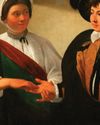
Fingers, frog's and fairies
Fortune telling was all the rage in the 16th and 17th centuries, and practitioners would stop at nothing to tap in to the supernatural. Martha McGill tells a story of Highland seers, tarot cards and encounters with the spirit world
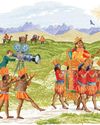
Nothing matches being with Alexander the Great on foot in the Hindu Kush
AT OUR LITTLE FILM COMPANY, MAYA VISION, we recently took the decision to digitise all of the rushes of our key films so that we could dispose of hundreds of boxes of tapes that had been kept in storage, throwing out stuff we thought we would never need again.

Library of the dead
Highgate Cemetery, created as a fashionable resting place for wealthy Victorian dead, is a veritable who's who of London's great and good. PETER ROSS roams the avenues of this most atmospheric necropolis
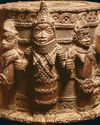
Slavery, exploitation and racism. These tragedies have long dominated histories of Africa. But there's another way to tell this story. And it's one that puts Africans right at the centre of their continent's extraordinarily rich and vibrant past
An 1414, in the Chinese city of Nanjing, a giraffe caused a stir. Amid a crowd of shocked, noble spectators, an official, leading the creature via a rope tied round its face, presented it to China's Yongle emperor. His officials said it was a qilin - an auspicious unicorn - which his sage governance had made appear.
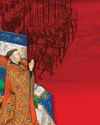
England's forgotten hero
When the Hundred Years' War was reaching a climax, one man was fighting tenaciously to secure the English claim to the French crown. So why, asks Joanna Arman, is Henry V's formidable brother, John, Duke of Bedford, not better known?
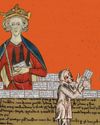
HENRY III AND THE MAGNA CARTA THAT MATTERED
King John's sealing of a charter at Runnymede in 1215 is one of the most feted moments of the Middle Ages. Yet, writes David Carpenter, it was the charter issued by his son 10 years later that became fundamental to England's history
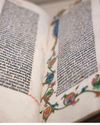
Gutenberg publishes a pioneering new book
‘The printing press triggers an information revolution
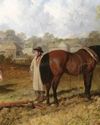
How empire ruptured rural Britain
We know that enslaved Africans and their descendants suffered in the distant colonies of empire. But, as Corinne Fowler explains, the colonial system also had dire impacts on people in the countryside of the 'motherland'
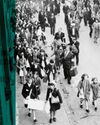
"I FELT VERY ALONE IN A WORLD GONE HORRIBLY MAD"
It was a moment of possibilities, dislocation and dread. Dan Todman tells the story of the 1.5 million urban Britons evacuated to the countryside at the start of the Second World War